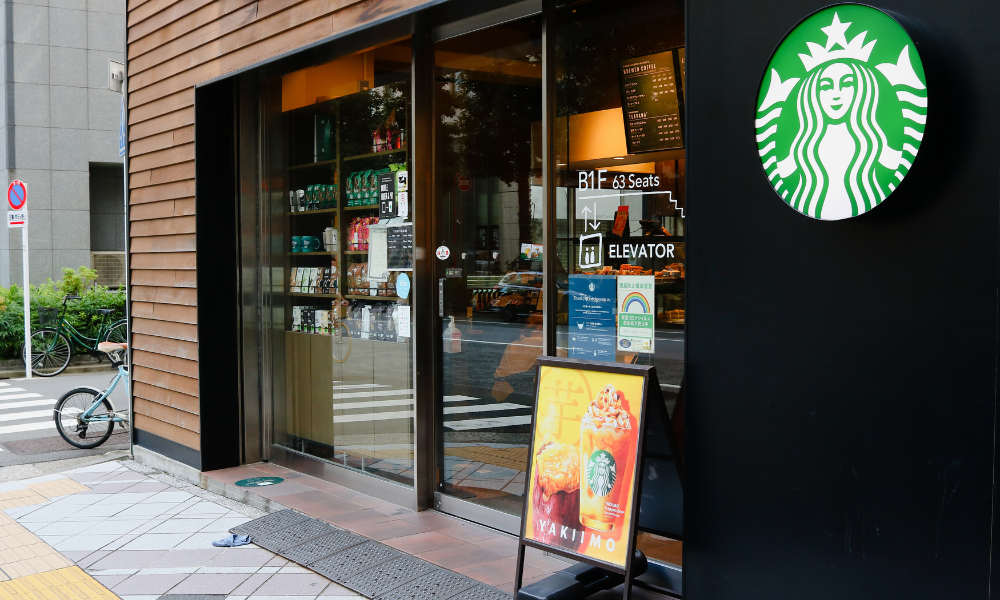
'The industrial instability must be a function of the bargaining unit structure itself and not a function of the parties’ collective bargaining strategies in a difficult set of negotiations'

The British Columbia Labour Relations Board (BCLRB) has dismissed Starbucks Coffee Canada’s request to overturn a decision allowing the union representing some of its employees to expand its bargaining unit.
The ruling, issued on Jan. 2, upheld an earlier decision permitting the United Steelworkers Local 2009 to add workers from a Powell River store to an existing unit that already represents employees at two locations in Surrey and Langley.
The union had also proposed, as an alternative, creating a standalone bargaining unit for Powell River employees.
Starbucks opposed the primary application for expansion, arguing that it would complicate already difficult collective bargaining efforts. The coffee giant cited concerns about industrial stability, referencing ongoing challenges negotiating with the existing unit and a previous decertification attempt by Surrey employees.
Starbucks applied for reconsideration under Section 141 of the Labour Relations Code, arguing that the original decision contained errors, including what it described as “impermissible speculation” by the board about the potential for long-term industrial stability with the expanded unit.
The company contended that there was no evidence to support the conclusion that the larger unit would foster stability. Starbucks also noted that one Surrey location had sought partial decertification, indicating dissatisfaction with the union's representation.
“Collective bargaining for the existing unit has been fraught,” the company argued, adding that changing the bargaining structure at this stage would “complicate bargaining further.”
Previously, the Starbucks Workers United accused the coffee giant of firing a worker in Buffalo, New York who initiated a unionization movement. The termination came during the same week that former CEO Howard Schultz faced questioning in Congress over the company's labor practices and alleged union-busting.
The union argued that the expanded unit would better promote industrial stability in the long term, aligning with the BCLRB’s established policies. The original panel, citing the Island Medical Laboratories Ltd. (IML) case, found that larger bargaining units generally create more stability than smaller, fragmented units.
In its earlier ruling, the board stated: “On the one hand, I can proceed with the Proposed Unit and introduce the variable of Powell River Store employees into the existing, and prolonged, collective bargaining negotiation for the Existing Unit. On the other hand, I can dismiss the Primary Application and grant the Alternative Application for a standalone unit, thereby increasing the number of bargaining units and negotiations for the parties in the absence of a demonstrated and established history of successful collective bargaining with multiple units.”
The panel concluded that adding the Powell River employees to the existing unit was more likely to foster long-term industrial stability.
In its Jan. 2 decision, the Labour Relations Board rejected Starbucks’ request for reconsideration. The board ruled that the original decision did not rely on speculation but followed established policies prioritizing industrial stability.
“To amount to industrial instability for the purposes of an IML analysis, the industrial instability must be a function of the bargaining unit structure itself and not a function of the parties’ collective bargaining strategies in a difficult set of negotiations,” the board wrote.
The board acknowledged the challenges in negotiating with the existing unit but determined there was insufficient evidence to link those difficulties to the bargaining unit structure. It noted that Starbucks had successfully negotiated a collective agreement with its Victoria unit, which is represented by the same union but operates as a standalone unit.
In May this year, workers at Amazon’s Laval warehouse in Quebec were allowed to unionize. However, unionization at other Amazon locations will be challenging, according to experts. Quebec’s Administrative Labour Tribunal previously ordered Amazon to refrain from making any statements or publishing any messages that have the purpose or effect of criticizing or denigrating the organizing campaign or questioning the usefulness of a union.